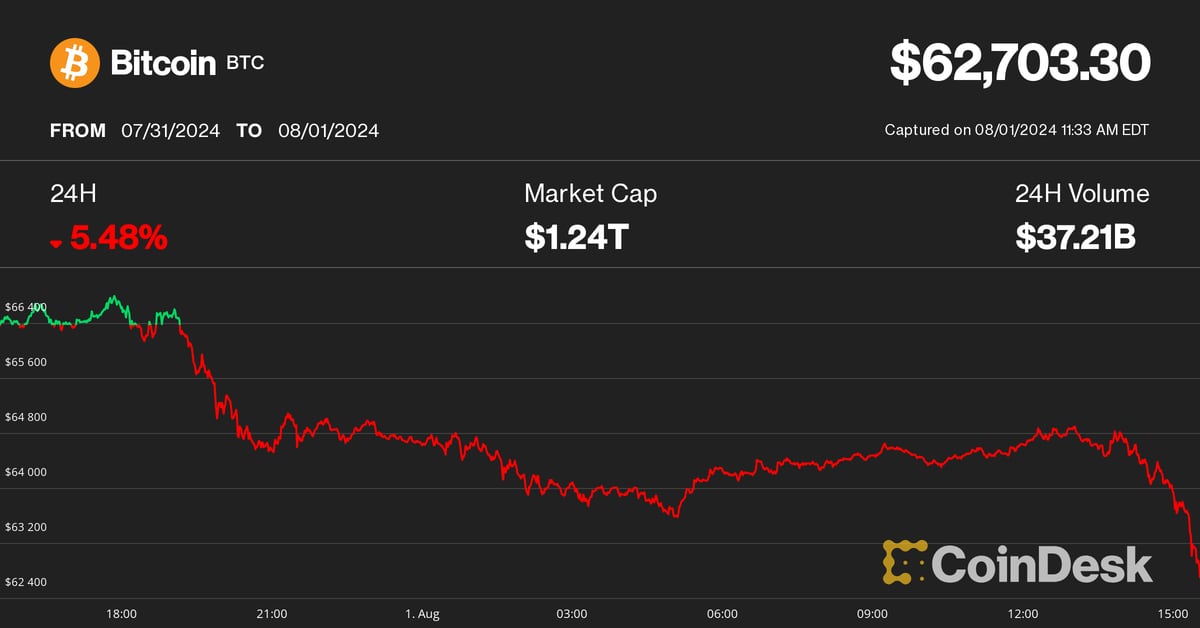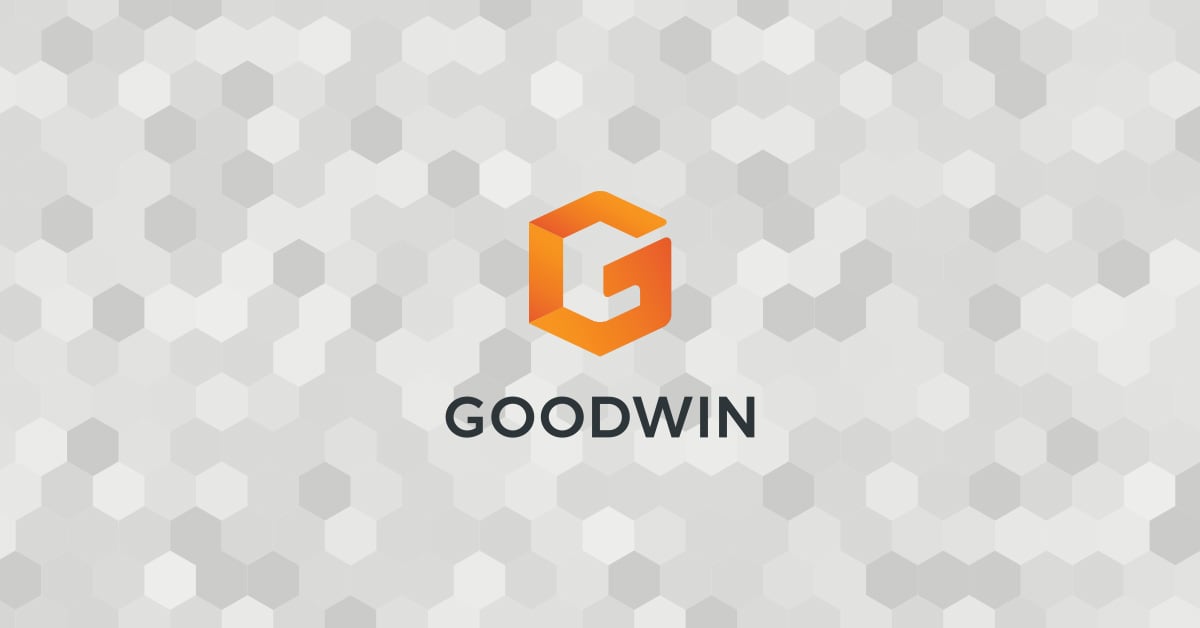Blockchain
Exploring the potential impact of authoritarian efficiency

The most recent episode of Bankless podcasts they discussed the potential benefits of authoritarian regimes in the 21st century. The argument stems from the idea that the Chinese and Russian governments allocate significant resources to promoting their narratives, while the US government takes a more hands-off approach.
In the episode, hosts Ryan Sean Adams and David Hoffman delve into whether authoritarianism could overtake liberal democracies, featuring insights from economist Noah Smith and Ethereum co-founder Vitalik Buterin.
The efficiency of authoritarian regimes as a threat to liberalism
Smith argues that liberal democracy was hailed as the optimal social model in the late 20th century, epitomized by Francis Fukuyama’s “The End of History” thesis. However, recent developments have called this triumphalism into question. The rise of China, perceived weaknesses in the United States, and the transformative impact of the Internet are central to this reassessment.
The role of the Internet is fundamental. Smith posits that liberal democracies historically excel at aggregating information through markets, elections, and public discourse. However, the Internet’s ability to centralize large amounts of data potentially reduces this advantage. Authoritarian states can now leverage this data to gauge public sentiment, allocate resources more efficiently, and respond quickly to unrest, as evidenced by China’s rapid political changes following the 2022 “White Paper protests.”
Furthermore, the Internet fosters information anarchy, facilitating the proliferation of misinformation. This scenario complicates governance in liberal democracies, where politicians spend a lot of time countering false narratives and raising funds, diminishing effective governance.
Buterin expands on this concept, comparing the information landscape to Thomas Hobbes’ concept of a “war of all against all,” in which monopolistic control over narratives might emerge as the only stable equilibrium. This metaphor highlights the potential for authoritarian regimes to exploit the internet’s capacity for data aggregation, transforming a tool designed for liberal empowerment into one that enforces centralized control.
Counterarguments to the Efficiency of Authoritarian Regimes
Smith and Buterin then explore counterarguments. Smith draws a parallel with the printing press, which reduced the costs of information and led to greater liberalism and social fragmentation rather than authoritarian rule. He wonders why the Internet shouldn’t follow a similar trajectory.
However, Smith explains that today’s situation involves non-linearity. Initially, reducing the costs of information through technologies such as the printing press and the telegraph strengthened liberal democracies by improving the aggregation of information. As these costs approached zero, the benefits leveled off while the costs of disinformation and information warfare increased exponentially.
Buterin adds that centralized systems often excel at extraction rather than production, potentially outperforming more liberal systems in zero-sum conflicts. He points out that defining success solely by economic output may overlook broader impacts on human flourishing.
Buterin then considers the fundamental differences of the digital world compared to the physical one, particularly in terms of defense mechanisms. Digital defenses, such as cryptography and decentralized platforms, offer robust protections without physical analogues, suggesting an inherent resistance to all-encompassing control in the digital sphere.
Furthermore, Buterin notes that fragmenting the Internet into smaller, more specialized communities could mitigate the negative impacts of information warfare. These fragmented spaces often maintain a higher quality of discourse than large, chaotic platforms like Twitter.
Buterin said:
«Twitter is the worst thing you can see, and it is the worst thing precisely because you can see it clearly if you think, for example, of private group chats.
Private group chats consistently maintain higher levels of quality and higher levels of productive discourse on smaller social media platforms, whether it’s Farcaster or whatever they maintain higher levels of discourse.
He then pointed to a 2022 article by Smith that discussed how The Internet wants to be fragmented.
Smith acknowledges this point, agreeing that reducing reliance on large, controversial platforms could reduce the social costs associated with information tournaments, allowing for more constructive and focused discussions within smaller, more coherent groups.
Despite these reassurances, Smith raises concerns about the global reach of authoritarian influence, particularly through hard-edged power tactics. He highlights how China uses economic leverage to influence foreign companies and governments, blurring national boundaries in the digital space. This ongoing cross-border information warfare presents a unique challenge distinct from traditional physical conflicts.
How blockchain could save democracy
During the discussion, Noah Smith raised the question of whether blockchain technology could enable secure communication between citizens in authoritarian states such as China and Russia. He wonders whether there are ways for people to speak freely and anonymously about political issues, bypassing government surveillance and censorship.
Vitalik Buterin responds by highlighting the work of a company called Rarimo, based in Kiev. He developed a tool called “Instrument of freedom”, which uses zero-knowledge proof technology to allow Russian citizens to prove their citizenship and participate in online voting without revealing their identity.
This system ensures that results are visible and tamper-proof, creating a form of anonymous and censorship-resistant voting. Buterin sees this as an example of how blockchain and zero-knowledge proofs can ensure both privacy and trustworthiness, potentially creating a more secure and resilient infosphere against both centralized and decentralized cyberattacks.
Buterin acknowledges that while blockchain technology may not be necessary for Americans to communicate, it may be crucial for people in authoritarian states to have secure, private conversations about their political situations. This technological capability could help promote internal dissent and democratization efforts within these regimes, providing a safe space for dialogue and organization.
Smith appreciates this perspective and sees potential in developing tools that make the Internet landscape more conducive to pluralism, where multiple groups can interact in productive ways. The idea is not to play a cat-and-mouse game with oppressive regimes, but to create robust systems that support healthy information ecosystems, allowing diverse voices to be heard without fear of retaliation.
In conclusion, blockchain technology, with its ability to provide secure, anonymous communications and verifiable voting mechanisms, offers promising avenues for supporting democratic movements and safeguarding freedoms in authoritarian contexts.
By leveraging these technologies, it may be possible to counteract some of the disadvantages liberal democracies face in the digital age, ensuring that democracy can continue to thrive even in challenging contexts.
Ultimately, the discussion highlights the complexity of predicting long-term outcomes in the face of rapid technological advances. While the potential for authoritarian regimes to exploit these technologies is significant, the inherent adaptability and resilience of liberal democracies should not be underestimated. The future remains uncertain, shaped by the interaction between technological capabilities, political structures and social values.
Mentioned in this article
Latest report on the Alpha market
Blockchain
Bitcoin (BTC) Price Crashes as Donald Trump’s Win Odds Dip

Markets received nominally good news on Thursday morning, with the US ISM manufacturing PMI for July falling much more than economists expected, sending interest rates to multi-month lows across the board. Additionally, initial jobless claims in the US jumped to their highest level in about a year. Taken together, the data adds to the sentiment that the US is on the verge of a cycle of monetary easing by the Federal Reserve, which is typically seen as bullish for risk assets, including bitcoin.
Blockchain
Terra Blockchain Reboots After Reentry Attack Leads to $4M Exploit

Please note that our Privacy Policy, terms of use, cookiesAND do not sell my personal information has been updated.
CoinDesk is a awarded press agency that deals with the cryptocurrency sector. Its journalists respect a rigorous set of editorial policiesIn November 2023, CoinDesk has been acquired from the Bullish group, owner of Bullisha regulated digital asset exchange. Bullish Group is majority owned by Block.one; both companies have interests in a variety of blockchain and digital asset businesses and significant digital asset holdings, including bitcoin. CoinDesk operates as an independent subsidiary with an editorial board to protect journalistic independence. CoinDesk employees, including journalists, are eligible to receive options in the Bullish group as part of their compensation.
Blockchain
$6.8M Stolen, ASTRO Collapses 60%

In the latest news in the blockchain industry, there has been a turn of events that has severely affected Terra and its users and investors, with the company losing $6.8 million. The attack, which exploited a reentry vulnerability in the network’s IBC hooks, raises questions about the security measures of the once celebrated blockchain protocol.
A web3 security company, Cyvers Alerts reported that the exploit occurred on July 31st and caused the company to lose 60 million ASTRO, 3.5 million USDC500,000 USDTand 2. 7 BitcoinThe flaw was discovered in April and allows cybercriminals to make payments non-stop by withdrawing money from the network.
Earth’s response
Subsequently, to the hack employed on the Terra blockchain, its official X platform declared the Suspension network operations for a few hours to apply the emergency measure. Finally in its sendTerra’s official account agreed, sharing that its operations are back online: the core transactions that make up the platform are now possible again.
However, the overall value of the various assets lost in the event was unclear.
Market Impact: ASTRO Crashes!
The hack had an immediate impact on the price of ASTRO, which dropped nearly 60% to $0.0206 following the network shutdown. This sharp decline highlights the vulnerability of token prices to security breaches and the resulting market volatility.
This incident is not the first time Terra has faced serious challenges. Earlier this year, the blockchain encountered significant problems that called into question its long-term viability. These repeated incidents underscore the need for stronger security measures to protect users’ assets and maintain trust in the network.
The recent Terra hack serves as a stark reminder of the ongoing security challenges in the blockchain space. As the platform works to regain stability, the broader crypto community will be watching closely.
Read also: Record Cryptocurrency Theft: Over $1 Billion Stolen in 2024
This is a major setback for Terra. How do you think this will impact the blockchain industry?
Blockchain
Luxembourg proposes updates to blockchain laws | Insights and resources

On July 24, 2024, the Ministry of Finance proposed Blockchain Bill IVwhich will provide greater flexibility and legal certainty for issuers using Distributed Ledger Technology (DLT). The bill will update three of Luxembourg’s financial laws, the Law of 6 April 2013 on dematerialised securitiesTHE Law of 5 April 1993 on the financial sector and the Law of 23 December 1998 establishing a financial sector supervisory commissionThis bill includes the additional option of a supervisory agent role and the inclusion of equity securities in dematerialized form.
DLT and Luxembourg
DLT is increasingly used in the financial and fund management sector in Luxembourg, offering numerous benefits and transforming various aspects of the industry.
Here are some examples:
- Digital Bonds: Luxembourg has seen multiple digital bond issuances via DLT. For example, the European Investment Bank has issued bonds that are registered, transferred and stored via DLT processes. These bonds are governed by Luxembourg law and registered on proprietary DLT platforms.
- Fund Administration: DLT can streamline fund administration processes, offering new opportunities and efficiencies for intermediaries, and can do the following:
- Automate capital calls and distributions using smart contracts,
- Simplify audits and ensure reporting accuracy through transparent and immutable transaction records.
- Warranty Management: Luxembourg-based DLT platforms allow clients to swap ownership of baskets of securities between different collateral pools at precise times.
- Tokenization: DLT is used to tokenize various assets, including real estate and luxury goods, by representing them in a tokenized and fractionalized format on the blockchain. This process can improve the liquidity and accessibility of traditionally illiquid assets.
- Tokenization of investment funds: DLT is being explored for the tokenization of investment funds, which can streamline the supply chain, reduce costs, and enable faster transactions. DLT can automate various elements of the supply chain, reducing the need for reconciliations between entities such as custodians, administrators, and investment managers.
- Issuance, settlement and payment platforms:Market participants are developing trusted networks using DLT technology to serve as a single source of shared truth among participants in financial instrument investment ecosystems.
- Legal framework: Luxembourg has adapted its legal framework to accommodate DLT, recognising the validity and enforceability of DLT-based financial instruments. This includes the following:
- Allow the use of DLT for the issuance of dematerialized securities,
- Recognize DLT for the circulation of securities,
- Enabling financial collateral arrangements on DLT financial instruments.
- Regulatory compliance: DLT can improve transparency in fund share ownership and regulatory compliance, providing fund managers with new opportunities for liquidity management and operational efficiency.
- Financial inclusion: By leveraging DLT, Luxembourg aims to promote greater financial inclusion and participation, potentially creating a more diverse and resilient financial system.
- Governance and ethics:The implementation of DLT can promote higher standards of governance and ethics, contributing to a more sustainable and responsible financial sector.
Luxembourg’s approach to DLT in finance and fund management is characterised by a principle of technology neutrality, recognising that innovative processes and technologies can contribute to improving financial services. This is exemplified by its commitment to creating a compatible legal and regulatory framework.
Short story
Luxembourg has already enacted three major blockchain-related laws, often referred to as Blockchain I, II and III.
Blockchain Law I (2019): This law, passed on March 1, 2019, was one of the first in the EU to recognize blockchain as equivalent to traditional transactions. It allowed the use of DLT for account registration, transfer, and materialization of securities.
Blockchain Law II (2021): Enacted on 22 January 2021, this law strengthened the Luxembourg legal framework on dematerialised securities. It recognised the possibility of using secure electronic registration mechanisms to issue such securities and expanded access for all credit institutions and investment firms.
Blockchain Act III (2023): Also known as Bill 8055, this is the most recent law in the blockchain field and was passed on March 14, 2023. This law has integrated the Luxembourg DLT framework in the following way:
- Update of the Act of 5 August 2005 on provisions relating to financial collateral to enable the use of electronic DLT as collateral on financial instruments registered in securities accounts,
- Implementation of EU Regulation 2022/858 on a pilot scheme for DLT-based market infrastructures (DLT Pilot Regulation),
- Redefining the notion of financial instruments in Law of 5 April 1993 on the financial sector and the Law of 30 May 2018 on financial instruments markets to align with the corresponding European regulations, including MiFID.
The Blockchain III Act strengthened the collateral rules for digital assets and aimed to increase legal certainty by allowing securities accounts on DLT to be pledged, while maintaining the efficient system of the 2005 Act on Financial Collateral Arrangements.
With the Blockchain IV bill, Luxembourg will build on the foundations laid by previous Blockchain laws and aims to consolidate Luxembourg’s position as a leading hub for financial innovation in Europe.
Blockchain Bill IV
The key provisions of the Blockchain IV bill include the following:
- Expanded scope: The bill expands the Luxembourg DLT legal framework to include equity securities in addition to debt securities. This expansion will allow the fund industry and transfer agents to use DLT to manage registers of shares and units, as well as to process fund shares.
- New role of the control agent: The bill introduces the role of a control agent as an alternative to the central account custodian for the issuance of dematerialised securities via DLT. This control agent can be an EU investment firm or a credit institution chosen by the issuer. This new role does not replace the current central account custodian, but, like all other roles, it must be notified to the Commission de Surveillance du Secteur Financier (CSSF), which is designated as the competent supervisory authority. The notification must be submitted two months after the control agent starts its activities.
- Responsibilities of the control agent: The control agent will manage the securities issuance account, verify the consistency between the securities issued and those registered on the DLT network, and supervise the chain of custody of the securities at the account holder and investor level.
- Simplified payment processesThe bill allows issuers to meet payment obligations under securities (such as interest, dividends or repayments) as soon as they have paid the relevant amounts to the paying agent, settlement agent or central account custodian.
- Simplified issuance and reconciliationThe bill simplifies the process of issuing, holding and reconciling dematerialized securities through DLT, eliminating the need for a central custodian to have a second level of custody and allowing securities to be credited directly to the accounts of investors or their delegates.
- Smart Contract Integration:The new processes can be executed using smart contracts with the assistance of the control agent, potentially increasing efficiency and reducing intermediation.
These changes are expected to bring several benefits to the Luxembourg financial sector, including:
- Fund Operations: Greater efficiency and reduced costs by leveraging DLT for the issuance and transfer of fund shares.
- Financial transactions: Greater transparency and security.
- Transparency of the regulatory environment: Increased attractiveness and competitiveness of the Luxembourg financial centre through greater legal clarity and flexibility for issuers and investors using DLT.
- Smart Contracts: Potential for automation of contractual terms, reduction of intermediaries and improvement of transaction traceability through smart contracts.
Blockchain Bill IV is part of Luxembourg’s ongoing strategy to develop a strong digital ecosystem as part of its economy and maintain its status as a leading hub for financial innovation. Luxembourg is positioning itself at the forefront of Europe’s growing digital financial landscape by constantly updating its regulatory framework.
Local regulations, such as Luxembourg law, complement European regulations by providing a more specific legal framework, adapted to local specificities. These local laws, together with European initiatives, aim to improve both the use and the security of projects involving new technologies. They help establish clear standards and promote consumer trust, while promoting innovation and ensuring better protection against potential risks associated with these emerging technologies. Check out our latest posts on these topics and, for more information on this law, blockchain technology and the tokenization mechanism, do not hesitate to contact us.
We are available to discuss any project related to digital finance, cryptocurrencies and disruptive technologies.
This informational piece, which may be considered advertising under the ethics rules of some jurisdictions, is provided with the understanding that it does not constitute the rendering of legal or other professional advice by Goodwin or its attorneys. Past results do not guarantee a similar outcome.
-

 Regulation11 months ago
Regulation11 months agoRipple CTO and Cardano founder clash over XRP’s regulatory challenges ⋆ ZyCrypto
-

 Regulation10 months ago
Regulation10 months agoNancy Pelosi Considers Supporting Republican Crypto Bill FIT21 – London Business News
-

 Videos11 months ago
Videos11 months agoCryptocurrency News: Bitcoin, ETH ETF, AI Crypto Rally, AKT, TON & MORE!!
-

 Regulation11 months ago
Regulation11 months agoBitcoin’s future is ‘bleak’ and ripe for regulation, says lead developer
-

 News8 months ago
News8 months agoAave Price Increases Following Whales Accumulation and V3.1 Launch
-

 Regulation8 months ago
Regulation8 months agoSouth Korea Imposes New ‘Monitoring’ Fees on Cryptocurrency Exchanges
-

 Regulation8 months ago
Regulation8 months agoA Blank Sheet for Cryptocurrencies: Kamala Harris’ Regulatory Opportunity
-

 Regulation8 months ago
Regulation8 months agoCryptocurrency Regulations in Slovenia 2024
-

 News11 months ago
News11 months agoThe trader earned $46 million with PEPE after reaching a new ATH
-

 Regulation10 months ago
Regulation10 months agoCrypto needs regulation to thrive: Tyler Cowen
-

 Blockchain11 months ago
Blockchain11 months agoSolana ranks the fastest blockchain in the world, surpassing Ethereum, Polygon ⋆ ZyCrypto
-

 Blockchain11 months ago
Blockchain11 months agoSolana Surpasses Ethereum and Polygon as the Fastest Blockchain ⋆ ZyCrypto





